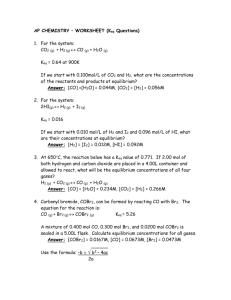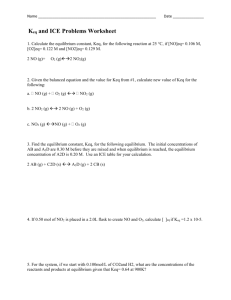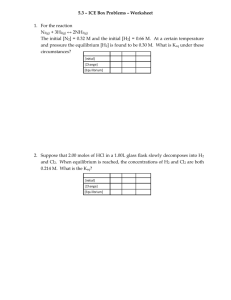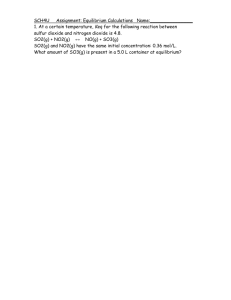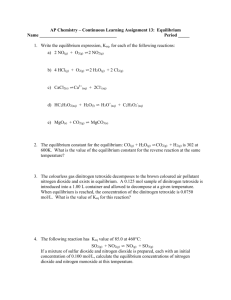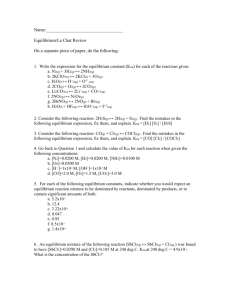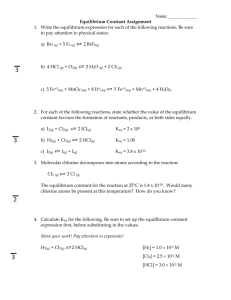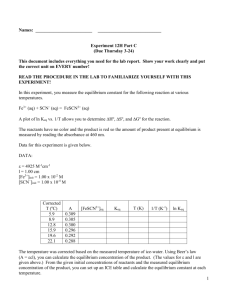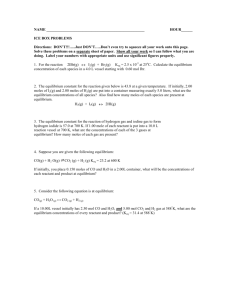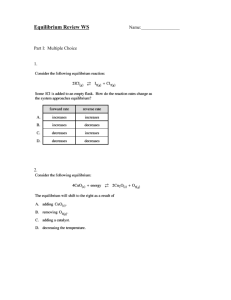Keq and ICE Problems Worksheet
advertisement
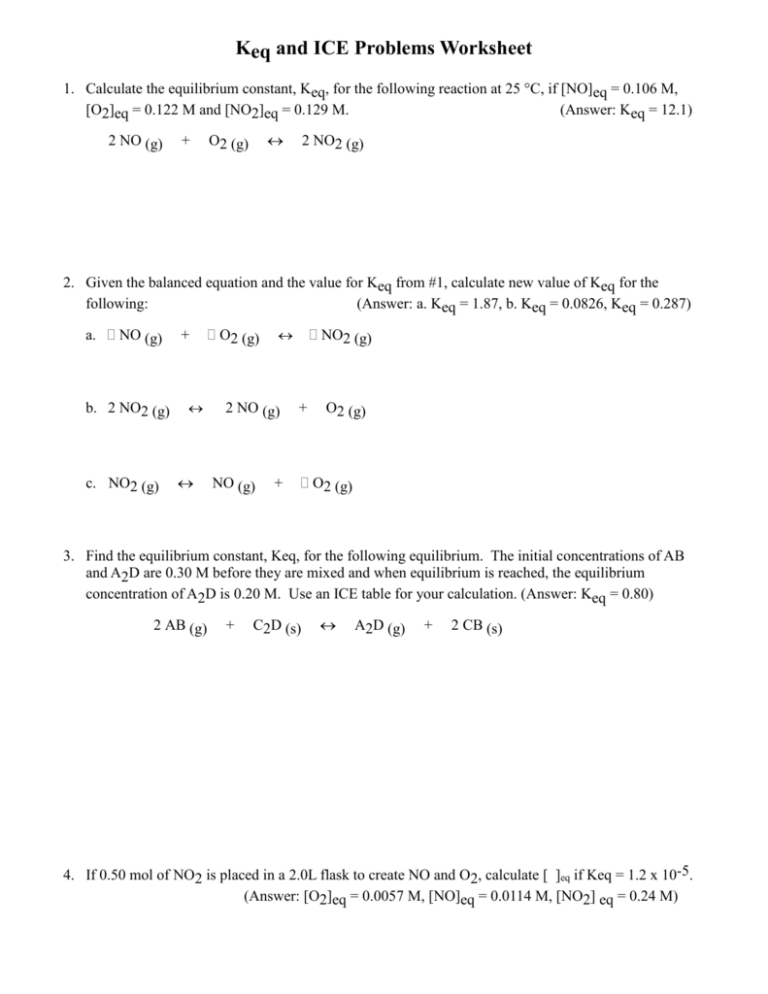
Keq and ICE Problems Worksheet 1. Calculate the equilibrium constant, Keq, for the following reaction at 25 °C, if [NO]eq = 0.106 M, [O2]eq = 0.122 M and [NO2]eq = 0.129 M. (Answer: Keq = 12.1) 2 NO (g) + O2 (g) 2 NO2 (g) 2. Given the balanced equation and the value for Keq from #1, calculate new value of Keq for the following: (Answer: a. Keq = 1.87, b. Keq = 0.0826, Keq = 0.287) a. NO (g) b. 2 NO2 (g) c. NO2 (g) + O2 (g) 2 NO (g) NO (g) NO2 (g) + + O2 (g) O2 (g) 3. Find the equilibrium constant, Keq, for the following equilibrium. The initial concentrations of AB and A2D are 0.30 M before they are mixed and when equilibrium is reached, the equilibrium concentration of A2D is 0.20 M. Use an ICE table for your calculation. (Answer: Keq = 0.80) 2 AB (g) + C2D (s) A2D (g) + 2 CB (s) 4. If 0.50 mol of NO2 is placed in a 2.0L flask to create NO and O2, calculate [ ]eq if Keq = 1.2 x 10-5. (Answer: [O2]eq = 0.0057 M, [NO]eq = 0.0114 M, [NO2] eq = 0.24 M) 5. For the system, if we start with 0.100mol/L of CO2 and H2, what are the concentrations of the reactants and products at equilibrium given that Keq = 0.64 at 900K? (Answer: [CO]eq = [H2O]eq = 0.044 M, [CO2]eq = [H2]eq = 0.056 M) CO2 (g) + H2 (g) CO (g) + H2O (g) 6. For the system, if we start with 0.010 mol/L of H2 and I2 and 0.096 mol/L of HI, what are their concentrations at equilibrium given that Keq = 0.016? (Answer: [HI]eq = 0.093 M, [H2]eq = [I2]eq = 0.012 M) 2HI(g) H2 (g) + I2 (g) 7. At 650°C, the reaction below has a Keq value of 0.771. If 2.00 mol of both hydrogen and carbon dioxide are placed in a 4.00 L container and allowed to react, what will be the equilibrium concentrations of all four gases? (Answer: [CO]eq = [H2O]eq = 0.234 M, [H2]eq = [CO2]eq = 0.266 M) H2 (g) + CO2 (g) CO (g) + H2O (g) 8. Carbonyl bromide, COBr2, can be formed by reacting CO with Br2. A mixture of 0.400 mol CO, 0.300 mol Br2, and 0.0200 mol COBr2 is sealed in a 5.00L flask. Calculate equilibrium concentrations for all gases, given that the Keq = 0.680. (Answer: [CO]eq = 0.0807 M, [Br2]eq = 0.0607 M, [COBr2]eq = 0.0033 M) CO (g) + Br2 (g) COBr2 (g)
